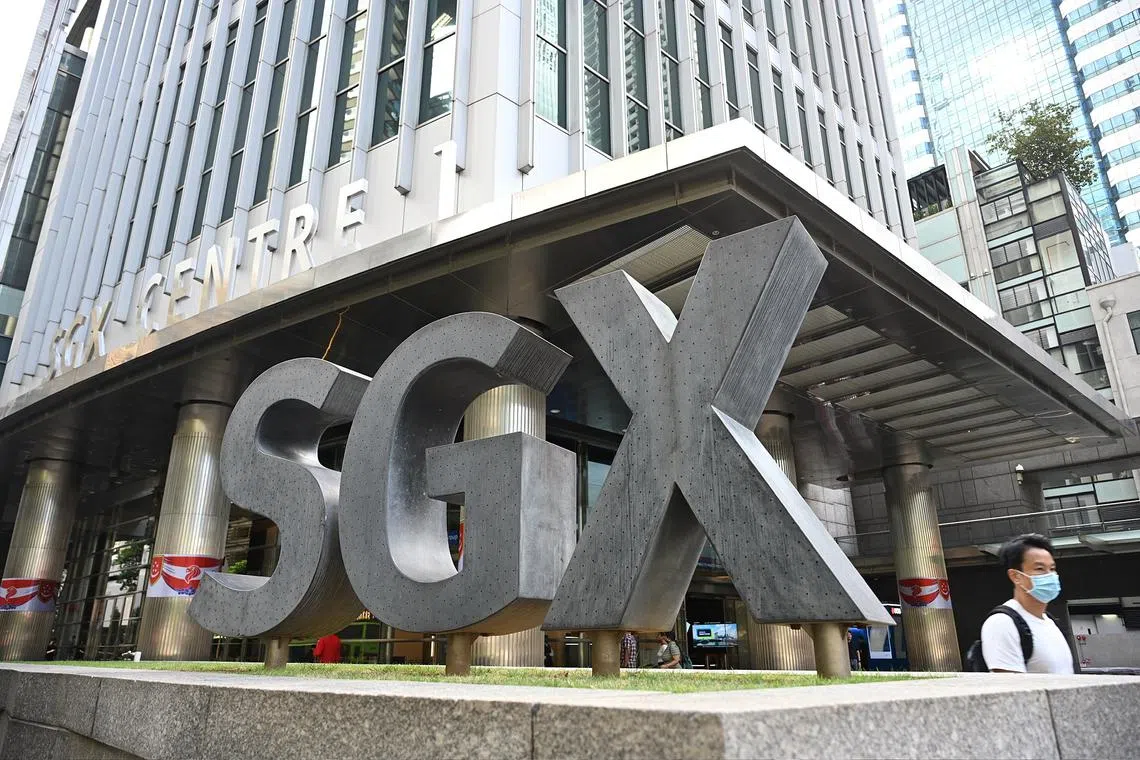Singapore stocks edge lower as tariff concerns weigh on investor sentiment; STI down 0.1%
Sign up now: Get ST's newsletters delivered to your inbox

The STI fell 0.1 per cent, or 4.3 points, to 3,708.09.
PHOTO: ST FILE
Ranamita Chakraborty & Chloe Lim
Follow topic:
SINGAPORE – Local shares dipped on Nov 27, while markets in the region turned in a mixed performance as investors digest the threat of US President-elect Donald Trump’s tariffs.
The Straits Times Index (STI) fell 0.1 per cent, or 4.3 points, to 3,708.09, with gainers outpacing losers 265 to 215 on trade of 957.4 million securities worth $1.1 billion on the broader market.
Thai Beverage led the STI, rising 1.9 per cent to 55 cents, while Yangzijiang Shipbuilding trailed the field, down 3.6 per cent to $2.44.
The local banks ended the day mixed. DBS rose 0.3 per cent to $41.85, UOB was down 0.1 per cent at $36.33 and OCBC fell 0.1 per cent to $16.08.
The most actively traded stocks included Singapore Post, which advanced 4.5 per cent to 58 cents following talks regarding the potential sale of its Australian business.
Maybank said SingPost is undervalued, noting that significant potential value arises from the sale of its various businesses, SingPost Centre and its post offices in the coming years. It initiated coverage with a “buy” rating and a price target of 74 cents.
Wall Street rose overnight, but key regional indexes were mixed.
Japan’s Nikkei 225 tumbled 0.8 per cent and the Kospi in South Korea fell 0.7 per cent, while Malaysian shares were up 0.1 per cent.
Chinese stocks rose – Hong Kong’s Hang Seng added 2.3 per cent and the Shanghai Composite was up 1.5 per cent – despite data showing that China’s industrial profits declined again by 10 per cent in October, albeit a milder fall than in September.
SPI Asset Management managing partner Stephen Innes noted that China’s weakening economic indicators loomed large over global markets in the light of the trade war risk.
“This downturn highlights the urgency of Beijing’s stimulus measures and amplifies their importance through the trade war filter,” he added.
“Investors, already jittery, are keenly aware of the ripple effects such protracted disputes could have, particularly on the Chinese and European economies that are bracing themselves for Trump’s tariff onslaught.” THE BUSINESS TIMES

